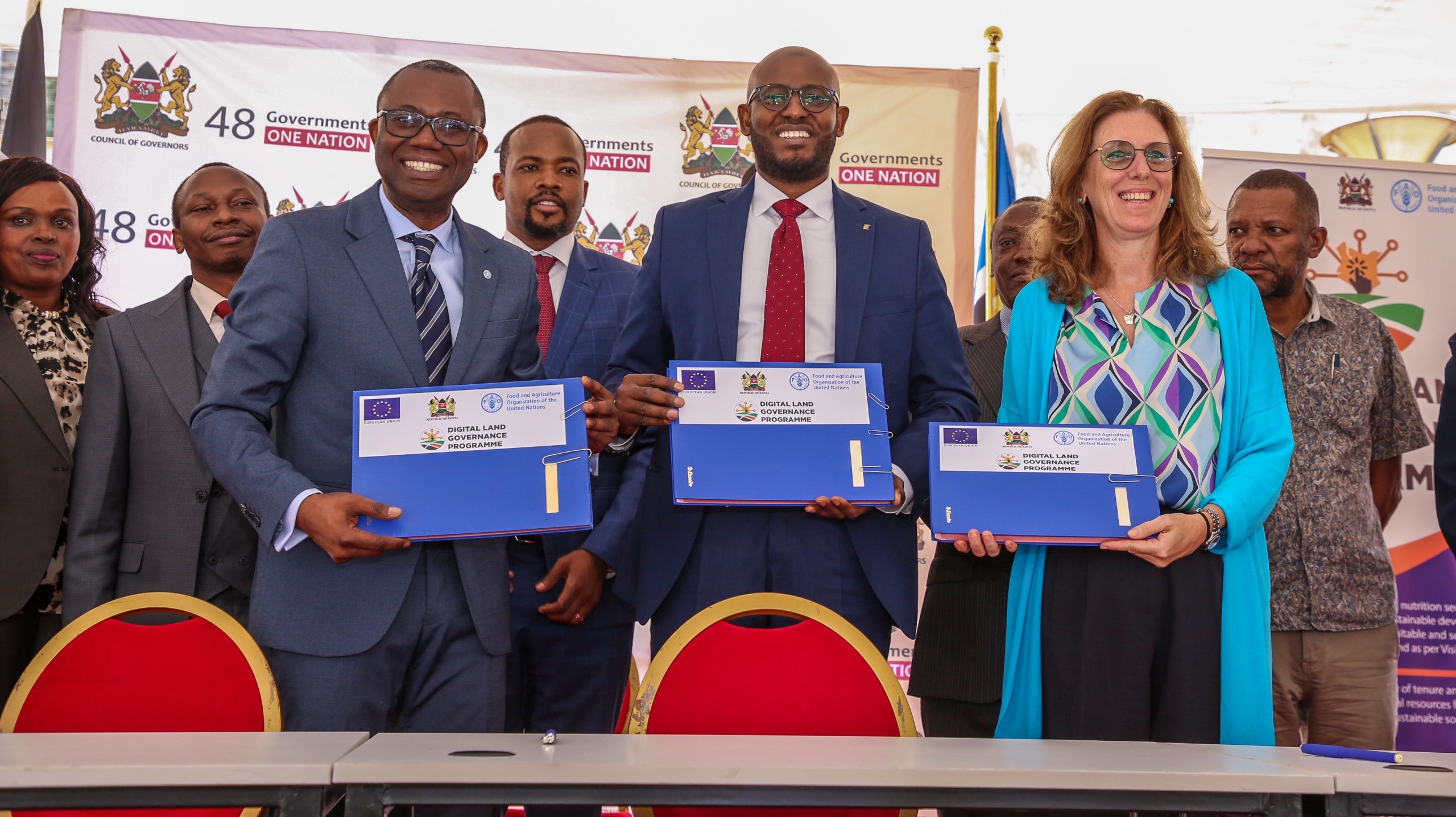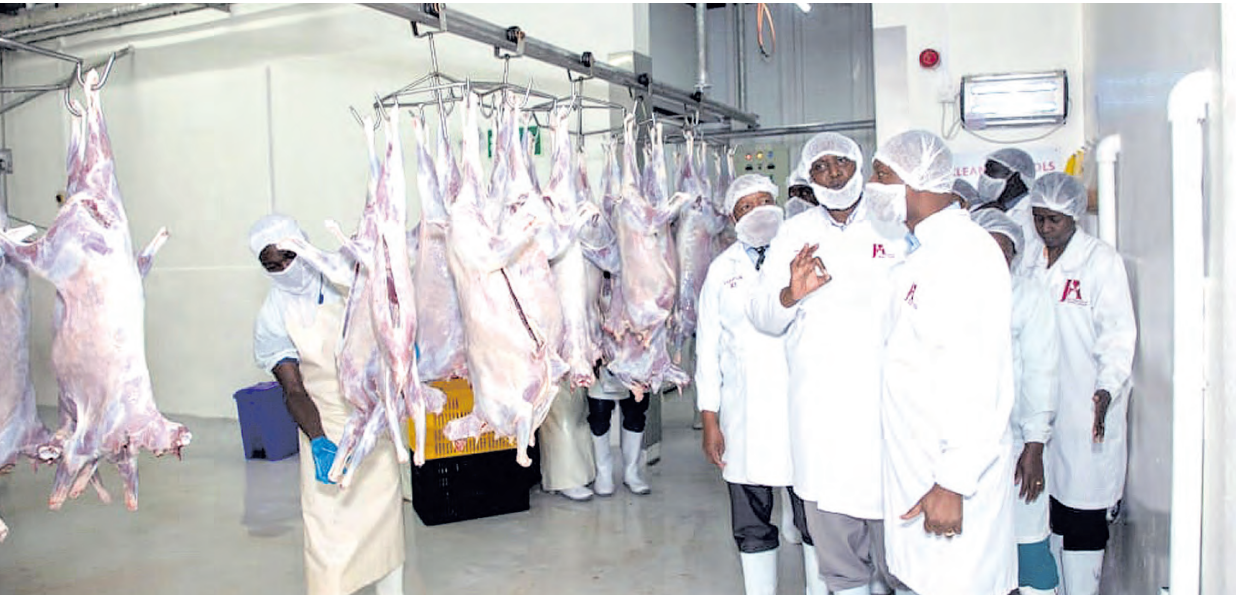

The State Department for Trade in recent years has been at the forefront of the country’s economic transformation. Its focus on digitalisation and regional integration has positioned Kenya to harness both local and global trade opportunities, thus driving sustainable growth.
This has included expanding market access, promoting economic inclusivity and enhancing the competitiveness of Kenyan businesses.
The State Department is laying a strong foundation for a resilient and prosperous economy by prioritising digital solutions and engaging deeply with regional trade frameworks.
Digitalisation has emerged as a key pillar in this strategy, enabling trade efficiency and inclusivity. The Kenya National E-Commerce Strategy, launched in December 2023, is central to this effort.
Designed to foster collaboration between the public and private sectors, the strategy focuses on empowering Micro, Small and Medium Enterprises to unlock the potential of digital platforms.
By improving access to both regional and international markets, reducing transaction costs and addressing the digital divide, the initiative helps Kenyan businesses, especially MSMEs, expand their reach in a rapidly evolving global marketplace.
In addition to digitalisation, the State Department has taken significant steps to strengthen Kenya’s export markets.
Trade agreements such as the Kenya-EU Economic Partnership Agreement (EPA), the Kenya-UK EPA, the African Growth and Opportunity Act (Agoa) and the Kenya-UAE Comprehensive Economic Partnership Agreement provide access to vital global markets.
At the regional level, the State Department has made substantial progress in advancing economic integration. A key achievement is the Tripartite Free Trade Area, which became operational on July 25, 2024.
It unites three of Africa’s largest regional economic communities - Comesa, EAC and SADC - creating a single market covering more than 53 per cent of the continent’s population.
The TFTA opens up significant trade opportunities, especially in agriculture and manufacturing.
Key exports such as tea, coffee, fruits, vegetables, flowers and fruit juices benefit from tariff liberalisation, making it easier for Kenyan products to access the broader African market.
This agreement initially liberalises 60 per cent of tariff lines, with plans to expand to 90 per cent over time, further unlocking trade opportunities. Kenya’s involvement in the African Continental Free Trade Area also has been instrumental.
Under AfCFTA’s Guided Trade Initiative (GTI), Kenya made history by shipping its first consignment of value-added tea to Ghana in October 2022.
Products worth about $5 million have been exported to new markets such as Ghana and South Africa. These exports include hides, energy-saving stoves, chloride batteries and plastic products.
Furthermore, the AfCFTA Protocol on Women and Youth in Trade ensures inclusivity by providing unique opportunities for them to access the continent’s growing trade.
AfCFTA’s Protocol on Digital Trade is another significant development.
This protocol aims to create a harmonised framework for digital trade across the continent, addressing issues such as data governance, digital product treatment and market access.
Kenya is positioning itself to take advantage of digital trade opportunities and ensure its MSMEs can compete on an equal footing in the African digital economy.
The Department has also focused on strengthening Kenya’s trade infrastructure. A notable initiative is the Kenya National Multi-Commodities Exchange, which has transformed commodity trading.
Komex connects smallholder farmers to better storage and credit facilities through the Warehouse Receipt System, addressing the challenge of post-harvest losses and enhancing farmers’ competitiveness.
Government investments of Sh797.68 million and private sector contributions of Sh1.4 billion ensure the platform’s sustainability.
Komex provides smallholder farmers with a centralised digital platform, real-time market intelligence and risk management tools, enabling competition in regional and global markets.
Komex is also linked to County Aggregation Industrial Parks (CAIPs), which further support agricultural value chains by providing market access, quality assurance and structured trading.
The Warehouse Receipt System Council has certified 16 warehouse operators, facilitating issuance of receipts for commodities such as maize, green grams, and soon, rice and potatoes.
These initiatives enhance transparency and efficiency, allowing farmers to access credit and reducing post-harvest losses while improving market access.
In its diplomatic efforts, the State Department has engaged in Joint Trade Committees with countries such as Tanzania, Uganda, Ethiopia, Saudi Arabia and the Netherlands.
These committees resolve trade barriers and promote cross-border cooperation. For instance, the Kenya-Netherlands JTC has focused on trade, investment and infrastructure, paving the way for stronger economic relations.
The Department has also played a role in multilateral trade diplomacy. By participating in World Trade Organization committees on Sanitary and Phytosanitary measures, Technical Barriers to Trade and trade facilitation, the Department ensures Kenya’s interests are safeguarded in the global trading system.
This active engagement helps the country advocate for favourable trade policies and ensures its concerns are addressed on the international stage.
ALFRED OMBUDO, Principal Secretary
for Trade











